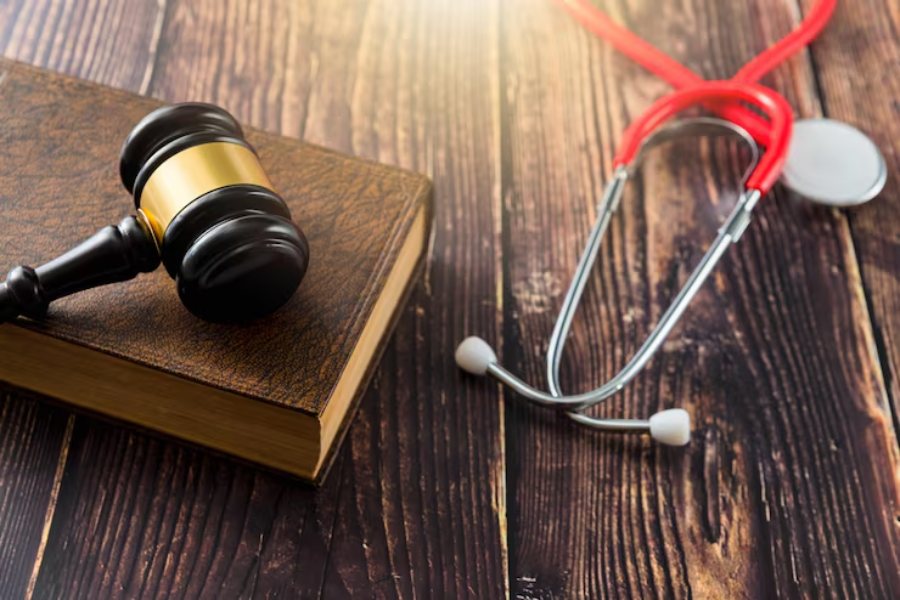Setting the Stage: The Intersection of Medicine and Law
Medical malpractice litigation isn’t polite debate over dinner. It’s a war fought with evidence, credibility, and precision. Stakes run high when someone’s career, reputation, or even livelihood hangs in the balance. One slip in testimony can tilt the verdict. From the legal side, the jury needs to be convinced. From the clinical side, the facts need to be airtight. It’s not enough to know the medicine. You must translate it in a way that cuts through legal maneuvering without losing its scientific backbone.
Role of the Medical Expert Physician in Court
A medical expert physician isn’t your friendly clinic consultant. They are specialists with the authority to dissect complex procedures, nail down causation, and define whether a standard of care was met or shattered. Picture a cardiologist explaining a nuanced surgical misstep to twelve laypeople while a defense attorney sharpens their questions like knives. In one malpractice case, an orthopedic surgeon detailed the chain of errors during a spinal surgery, turning what looked like a complication into clear negligence. The expert didn’t just speak medicine. They spoke verdict.
Assessing a Doctor Witness’s Credentials and Experience
Credentials are the armor. Board certifications. A track record of peer-reviewed publications. Active hospital appointments. A testimony portfolio free of contradictions. Attorneys who skip this vetting process are gambling. Sourcing from a reputable physician expert witness directory can protect against hiring someone whose confidence crumbles under cross examination. Dig through deposition transcripts. Read verdict histories. You’re looking for consistency, nerve, and clarity when the spotlight hits.
Strategic Preparation for Effective Medical Testimony
Preparation isn’t just flipping through a chart the night before. It’s deep collaboration between counsel and physician. Reviewing every file. Distilling complex findings into three or four unshakable talking points. Building visual aids that do more than look pretty—they illuminate. Mock examinations are the crucible, flushing out weak phrasing and predictable traps. The best physicians learn to swap jargon for plain terminology that still respects the sophistication of the medicine.
Translating Clinical Evidence for a Jury Audience
Facts can drown in their own complexity. Analogies and storytelling are lifesavers. Use them to anchor a jury’s mental picture without sanding down critical nuances. A graph showing vitals trending downward is more memorable than ten minutes of verbal minutiae. Pacing matters too. Deliver at a rhythm that keeps jurors leaning forward instead of mentally wandering. By the time the turning point evidence hits, they should see it coming and feel its weight.
Navigating Cross-Examination and Defense Tactics
Defense attorneys are paid to dismantle you. They’ll question your methodology. Pick at your credentials. Wave conflicting studies like sharp flags. The calm expert sidesteps with precision, looping back to strong prepared points. Correct misstatements without attitude, just clean facts. Pauses work like brakes in traffic. Controlled pacing keeps you ahead of where they want to funnel you.
Addressing Bias and Conflicting Expert Opinions
Bias creeps into any human opinion. A solid methodology is the antidote. When an opposing expert spins a different narrative, counter with data no one can twist. Point out flaws in their sampling, inconsistencies in their reasoning. Credentials are your shield, but ethics are your backbone. Consistent adherence to peer-reviewed standards adds weight no cross examiner can easily strip away.
Case Study: Turning Medical Insight into Legal Advantage
In one case, a neurologist’s testimony broke the stalemate. Meticulous preparation transformed dense MRI interpretations into a compelling narrative the jury could follow. In court, the delivery was surgical—no wasted words, no faltering under duress. By closing arguments, the medical evidence felt indisputable. The lesson stuck: clarity, credibility, and tight alignment with counsel can tip the scale when the legal and medical meet.
Emerging Trends Impacting Physician-Led Testimony
Telemedicine expands expert availability but adds questions about direct patient assessment. AI diagnostics generate new data streams that courts must decide if they trust. Digital health records introduce both irrefutable timestamps and endless privacy debates. Courtroom tech isn’t static. Experts unwilling to evolve risk becoming obsolete in front of a modern jury. Staying fluent in these tools isn’t optional.
Securing Verdicts Through Medical Insight
Medical experts bridge the chasm between complex biology and surgical legal strategy. For attorneys, this means hunting for experts with proven credibility, preparing them relentlessly, staging visuals that stick, and having counterfire ready for cross. The gavel falls not just on arguments but on how those arguments were delivered. In malpractice cases, medical expertise isn’t an accessory. It’s the spine of the verdict.
Robert Stewart is a seasoned law blog writer with a passion for translating complex legal concepts into accessible, informative content. With a keen eye for detail and a knack for storytelling, Robert crafts engaging articles that educate and empower readers in the realm of law.
Drawing upon his extensive experience in the legal field, Robert brings a wealth of knowledge to his writing, covering a diverse range of topics including personal injury, family law, criminal defense, and more. His articles combine thorough research with clear, concise language, making them valuable resources for both legal professionals and laypeople alike.


